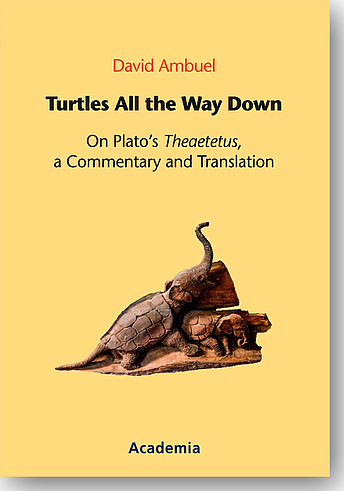Ambuel
Turtles All the Way Down
ISBN 978-3-89665-640-7
The Theaetetus is subtitled peri epistemes, on knowledge, and peirastikos, tentative. Theaetetus' three attempted definitions of knowledge, each ventured only to fail, are structured in a cascading reduction. This regress functions both negatively, as an indirect demonstration that knowledge is not definable in term of opinion or judgment, that is, knowledge is not 'opinion plus,' but also positively, as the ill-fated definitions build upon one another to delineate the elements necessary for a possible theory of judgment. The themes of knowledge and judgment never resolve, yet, through the multiple peirastic beginnings that perish struggling to say something lasting about knowledge, this main theme ties together the dialogue's many subthemes-wisdom and character; sophistry and its relation to philosophy; Socrates' trial; intellectual midwifery, or Socratic dialectic; appearance and reality; Heracliteanism; Eleaticism; forms and participation; unity and plurality; particularity and universality; identity and difference; memory and time; relations; the relation of resemblance.
One could go on. The guiding question, how to define knowledge, is a theoretical one, and the reasoning becomes progressively more abstract as the dialogue proceeds, while at the same time never straying far from practical implications: the theoretical conception of knowledge holds consequences made manifest in human action and deliberation. The dialogue about knowledge is also a dialogue about wisdom.


